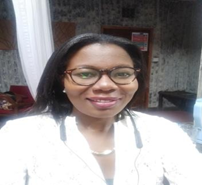 Veronica Mang’eni is a Women’s Democracy Network (WDN) representative in Kenya and a leadership board member of its WDN-Africa regional network. WDN is a global initiative of the International Republican Institute (IRI), one of the Consortium for Elections and Political Process Strengthening’s (CEPPS) three core partners, dedicated to promoting women’s political participation and leadership.
Veronica Mang’eni is a Women’s Democracy Network (WDN) representative in Kenya and a leadership board member of its WDN-Africa regional network. WDN is a global initiative of the International Republican Institute (IRI), one of the Consortium for Elections and Political Process Strengthening’s (CEPPS) three core partners, dedicated to promoting women’s political participation and leadership.
As a fiscal analyst and accountant by training, Veronica has been working as a master trainer with legislatures for more than a decade to provide training on gender responsive budgeting. Additionally, she has published papers on corruption in the budget process, gender responsive budgeting as a means of achieving equality, countering violent extremism among Kenyan youth, and challenges to youth participation in political parties in Kenya, Uganda and Tanzania. Veronica recently spoke to CEPPS about what investing in gender equality means to her.
What does investing in gender equality mean to you?
“When we involve everyone in decision-making, equality is realized. The perfect model that has been applicable, and realized positive feedback, is the “Intra-Household, Communication and Cooperation” (ICC) model; a dialogue model that enhances inclusivity by ensuring that everyone participates equally and that women are allowed to make decisions without interference by men. This encourages where men, women, boys and girls are allowed to decide on what is best for themselves. Achieving communication at the household level enhances participation, inclusivity, and satisfaction.”
How does investing in women advance gender equality?
“Investing in women empowers them socioeconomically, thus, providing a level field for healthy competition across sectors and industries. Women are a great pillar of the economy, and [make up] a majority of voters, and therefore have power, but unfortunately that is undermined by patriarchy. Women in leadership have registered notable progress, however, and that has made men join in to support them.”
What do you see as some of the major challenges to advancing gender equality in Kenya? How do you think these challenges can be best overcome?
“Policies and legislation have gaps. They only provide an entry point and not robust solutions. There is a need to enhance our policies and contextualize them to target the challenges.
“The level of political will among policymakers is the [greatest] determining factor of the success of these policies. We still have a long way to go in persuading them. There is a perception that gender is a women’s affair and that needs to be corrected. When we incorporate male allies, we change the narrative and help everyone to appreciate the value of gender equality and, in turn, advocate for more inclusivity.
“Cultural barriers and disparities, like those among urban and rural women, may lead to uneven playing fields for women. Additionally, there are sectoral dynamics to consider and [when] integrating gender equity in many sectors is a challenge. For instance, politics, agriculture, and education have different perspectives that may increase disparities and thus discourage participation of the women involved in these sectors.”
What role is gender-responsive budgeting playing in advancing gender equality in your country?
“Gender responsive budgeting is a critical recognition and enabler of gender equitable programming, leadership, management, implementation, and evaluation. It gives an opportunity for one to wear gender lenses and understand each and every action from gender perspective. It’s the catalyst and beginning of gender empowerment.”
For more information, follow Veronica @NasirumbiV on X.